Abstract
BACKGROUND: In this study, maternal sociodemographic factors are examined in relationship to the quality of prenatal health services US women receive. METHODS: Data from the 1980 National Natality Survey and 1980 Fetal Mortality Survey were used for the analysis. Indicator variables for prenatal care quality are the percentages of prenatal visits at which blood pressure and urine were tested, the performance of hemoglobin or hematocrit tests, and the presence or absence of advice regarding salt restriction and diuretics usage during pregnancy. RESULTS: Distribution of the basic examinations in prenatal care vary according to marital status, parity, education, and residence in a metropolitan or nonmetropolitan county. The advice received concerning salt and diuretics usage was also influenced by sociodemographic variables. CONCLUSIONS: The analyses reveal that prenatal care is not of even minimally acceptable quality for many women.
Full text
PDF
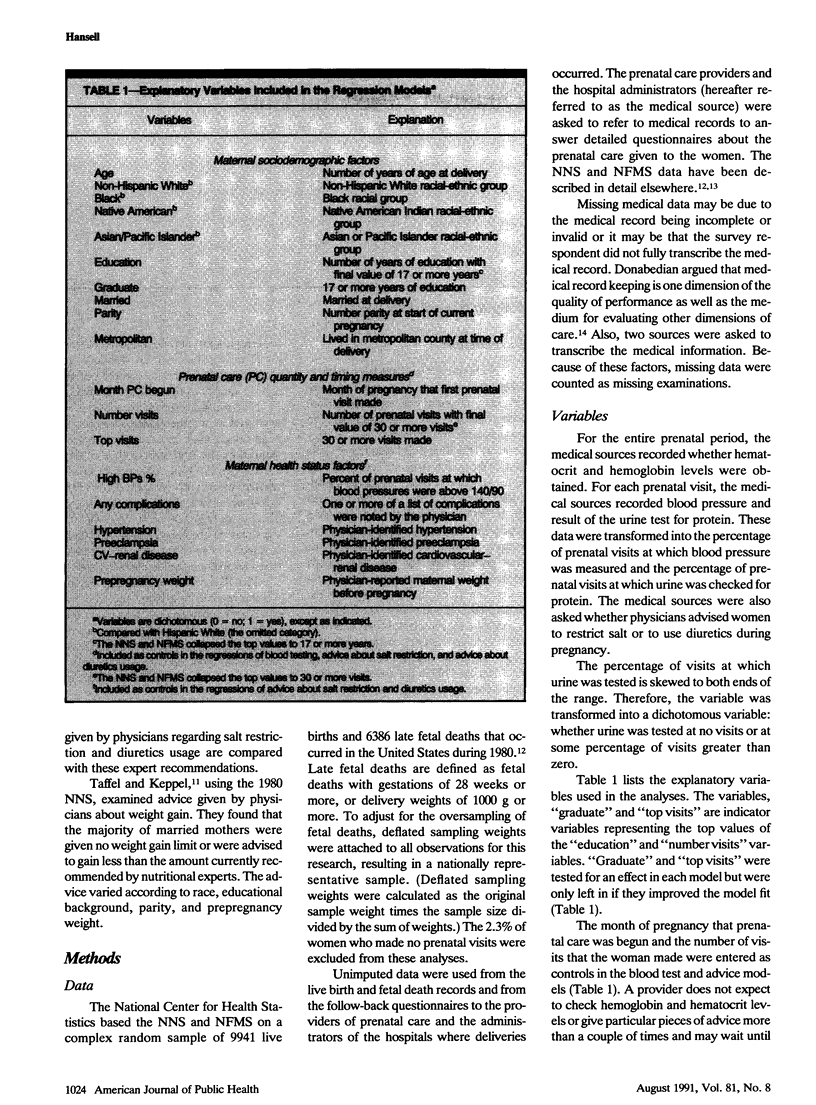
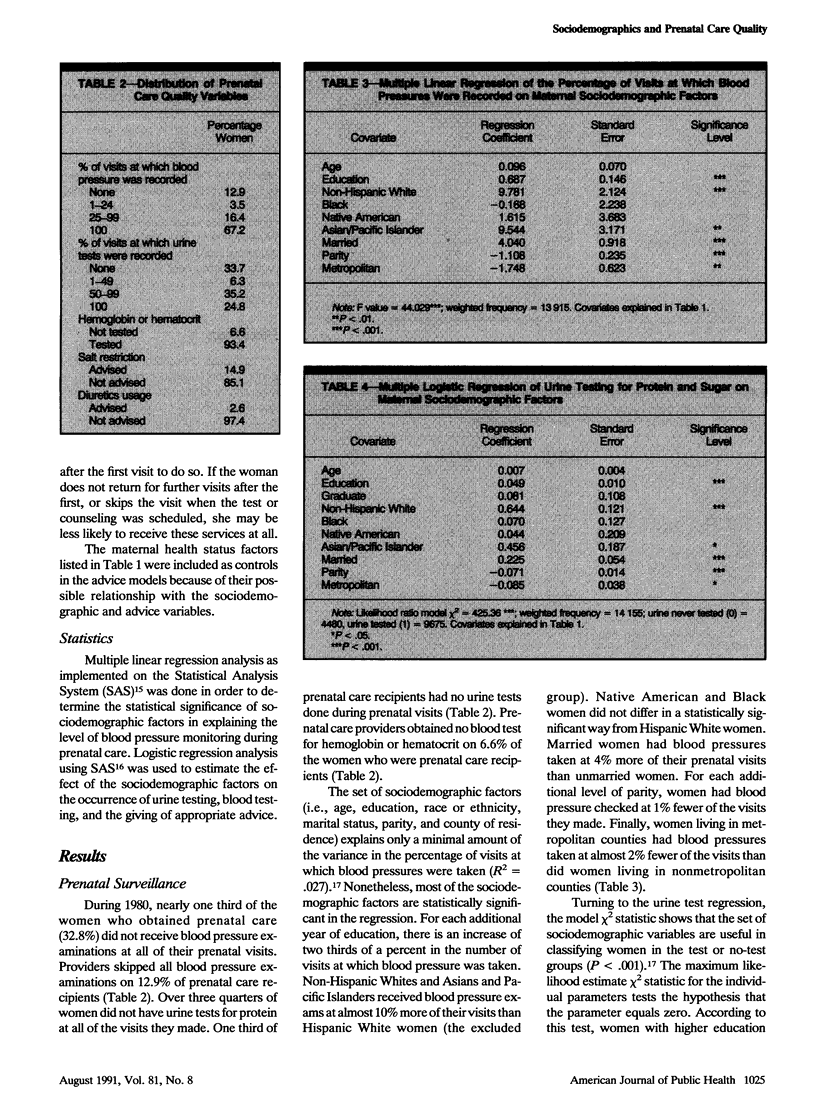
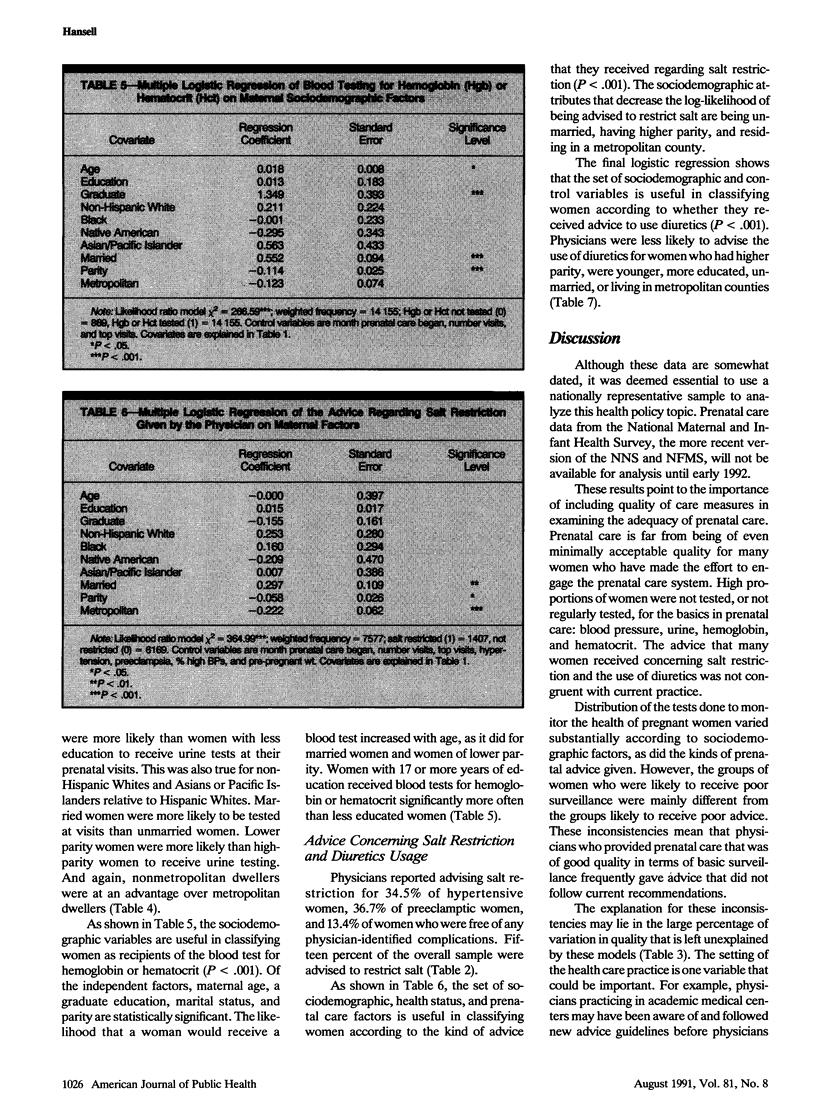
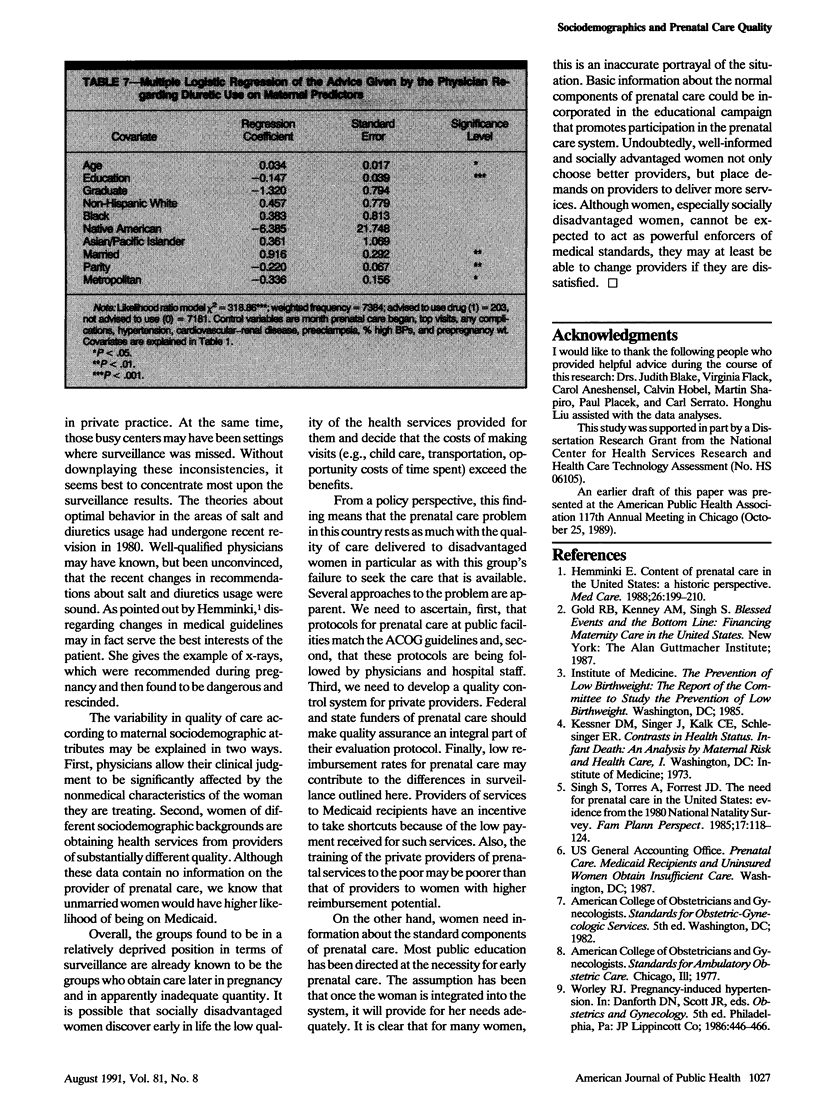
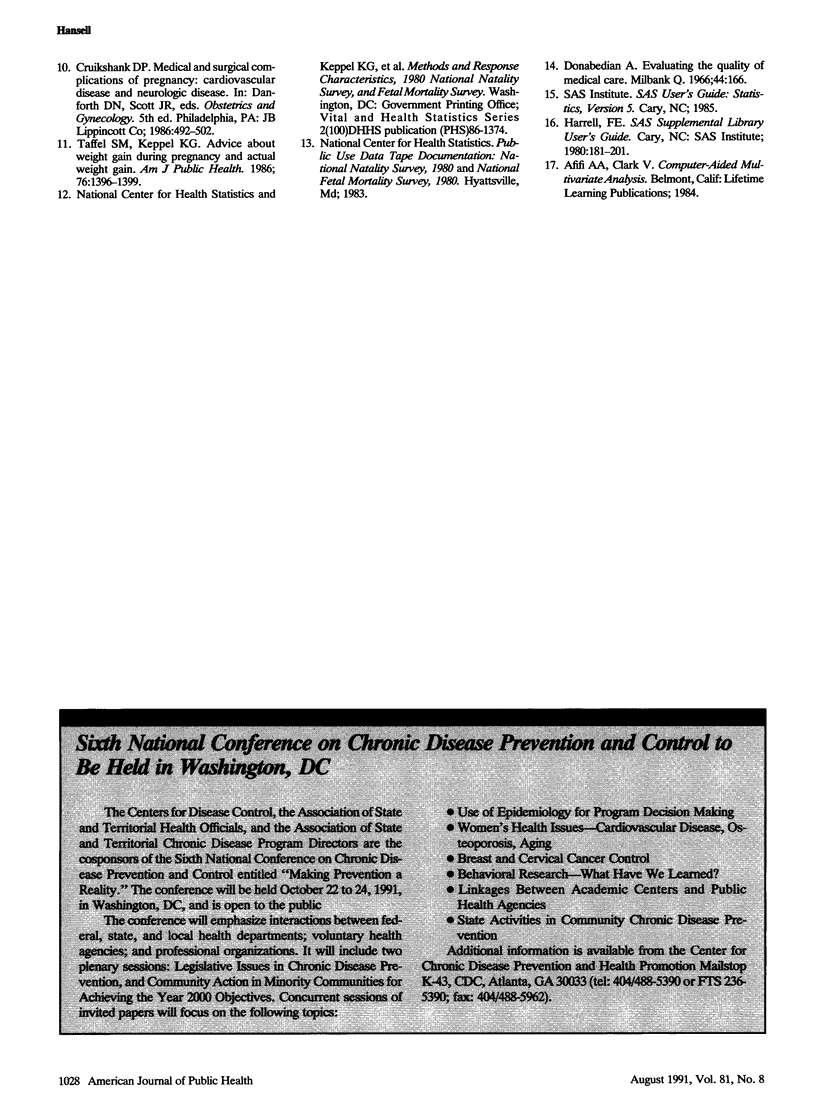
Selected References
These references are in PubMed. This may not be the complete list of references from this article.
- Hemminki E. Content of prenatal care in the United States. A historic perspective. Med Care. 1988 Feb;26(2):199–210. doi: 10.1097/00005650-198802000-00010. [DOI] [PubMed] [Google Scholar]
- Singh S., Torres A., Forrest J. D. The need for prenatal care in the United States: evidence from the 1980 National Natality Survey. Fam Plann Perspect. 1985 May-Jun;17(3):118–124. [PubMed] [Google Scholar]
- Taffel S. M., Keppel K. G. Advice about weight gain during pregnancy and actual weight gain. Am J Public Health. 1986 Dec;76(12):1396–1399. doi: 10.2105/ajph.76.12.1396. [DOI] [PMC free article] [PubMed] [Google Scholar]



